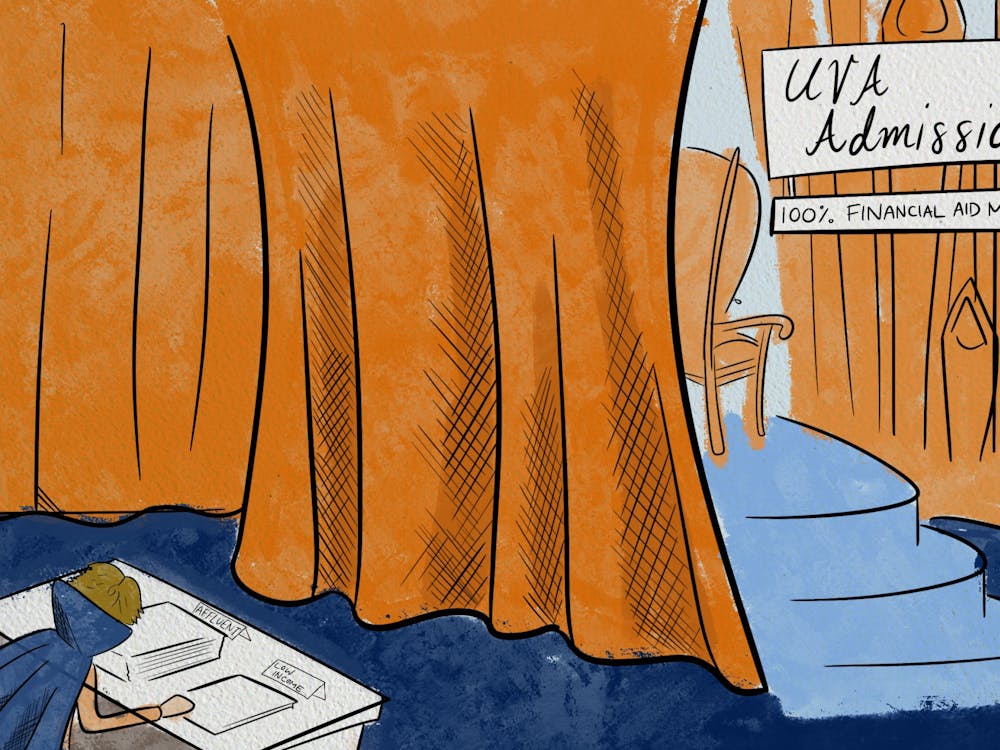The students arriving on Grounds this week have experienced a variety of extreme weather over the course of this summer, including devastating wildfires throughout California, an intense drought across the plains of Texas, torrential rains on the East Coast and toxic algae blooms on the shores of Lake Erie. Weather itself is capricious, yet in recent years “extreme” weather has become more commonplace. Such events underscore the immediate human cost of climate change. In the midst of these intense events, however, it may be easy to forget the daily responsibility that local communities and individuals bear in mitigating this cost. The University should respond to the ever-rising cost of climate change by shaping public debate on energy policy and climate change.
The recent water contamination crisis in Lake Erie demonstrates the devastating toll of both climate change and human errors. Climate change generated both warmer waters well suited to toxic algae and a higher frequency of heavy rainfall events, both of which ultimately crippled Toledo’s outdated sewage systems, causing the contamination. Yet this crisis was also fundamentally man-made. Both an unwillingness to come to terms with the reality of climate change and a stubborn reluctance to accept personal accountability for such events continue to cripple our collective capacity for prevention and reform. Early analyses of the Toledo incident demonstrate that mismanagement of agricultural waste and an accidental introduction of invasive species to Lake Erie primarily caused the fateful contamination.
This crisis, however, was by no means an isolated incident. In fact, the EPA cites harmful algae blooms as “a major environmental problem in all 50 states.” Indeed, nearly half of the lakes in Virginia that were sampled by the EPA in 2007 were found to have dangerously high levels of toxic algae. The Lake Erie crisis highlights the need for a collective awareness of the effects of climate change and the need for a well-informed community that can exert a positive influence on its environment. Moderating our effect on climate change at the individual level is a task that should be confronted with a newfound sense of urgency. At the least, the Toledo crisis gives us a hint of the chaotic and disruptive quality of life in a changing climate.
In light of the events of this summer, it is as good a time as any to underscore the serious responsibility that our generation bears in forging an eco-friendly path for the University’s future. Emphasizing the public health risks associated with climate change — perils made all too apparent by the Toledo incident — should help to place the human impact of climate change in stark focus. Articulating the impact of climate change in this way should help students acquire a tangible sense of its costs. In light of these rising costs, it may be prudent for the University community to reconsider the viability of the divestment movement, one that asks schools to divest their endowments from fossil fuel companies.
If such a movement is to gain any momentum, however, it must recognize the problem posed by the University’s present financial disposition. In the current economy, complete divestment from fossil fuel companies would be fiscally irresponsible, for a great portion of the University’s energy needs still comes from such companies. In time, the University must face the reality of its dependence on such energy sources. For the moment, the University should nonetheless be considering substantial reforms, if not complete divestment.
On that note, Stanford University recently paved the way for other universities by choosing to discontinue all direct investments in coal companies, citing the availability of alternate energy sources with lower greenhouse gas emissions. If the University wishes to be a leader in sustainability going forward, it should consider a similar move. The University is situated in a region with access to a variety of alternative, less environmentally impactful energy sources such as natural gas, the cleanest of the fossil fuels. Given the availability of other sources, divestment would be an economically practical and environmentally conscious step away from fossil fuel dependence.
While complete divestment might be ineffective in a financial sense, a divestment movement with a relatively narrow goal can certainly have an impact by shaping public discourse. The University, as a leader amongst the country’s universities, arguably has a duty to shape public debate on energy policy and climate change. As the outsized lobbying influence of the energy industry currently dominates this debate, a new burden falls upon the student body. As the community comes together for a new year, increased support for a student-led campaign advocating divestment from coal companies may be an achievable step towards environmental sustainability, one that would set a tone for the future.
Conor Kelly is an Opinion Columnist for The Cavalier Daily. He can be reached at c.kelly@cavalierdaily.com.




